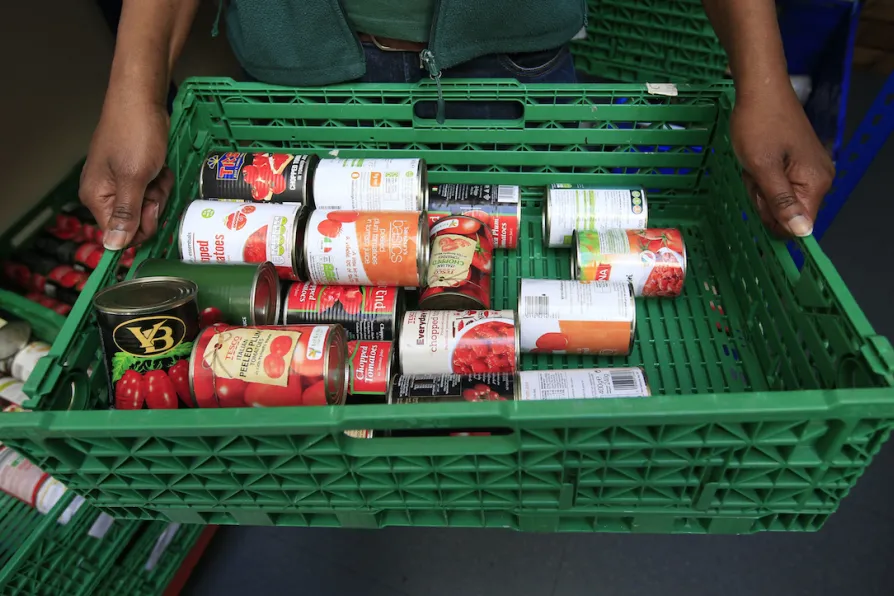This weekend, the NEU holds a special conference to debate changing its approach to organising teaching assistants, which a 2017 TUC agreement forbids. General secretary DANIEL KEBEDE outlines the choices before delegates
BFAWU general secretary SARAH WOOLLEY argues that the economy needs to be totally restructured to put a stop to never-ending cuts and spiralling poverty and inequality


AS LABOUR conference meets this week, it has never been more important for trade unionists and all progressives to talk about the kind of economy we need — because the one we’ve got is failing working people every single day.
And let’s be honest — austerity hasn’t ended with the Tories being voted out. Working people are still paying the price. Food prices are still sky high. Wages are still far too low. Homes are still cold and damp. Public services are still being cut back to the bone And it is disabled people, low-paid workers, and young people who are feeling it the hardest.
In BFAWU (the Bakers, Food and Allied Workers’ Union) we see it every day. Members having to choose between heating and eating. Disabled workers being pushed out of jobs or left without the support they need. Young people in food factories on poverty pay, with no security, while corporations make millions. That’s the reality of Labour’s so-called “fiscal discipline” — it means more austerity, just with a different colour rosette.
The key message then from our union and the movement as a whole this week is clear. If the Chancellor insists on sticking to arbitrary fiscal rules while refusing to tax wealth, the price will be paid by our communities. We know from experience what that means: another round of cuts, with real damage done to real people, and more hardship for the people least able to bear it.
Our members in the BFAWU work in food production, fast food and hospitality. They are some of the lowest-paid workers in the economy, because the industry is seen as unskilled, meaning they already face poverty wages, insecure contracts and rising living costs.
When austerity bites, it is our members who feel it first and hardest — through higher food bills, worse housing, and the collapse of local services that people rely on.
That’s why we say clearly that there is an alternative to never-ending cuts and permanently spiralling poverty and inequality.
The money is there to make a better society and economy — it’s just in the wrong hands. We need to raise taxes on the wealthiest in society, and on those corporations who make record profits while our members struggle to put food on the table. That wealth should then be invested back into our communities — in housing, in health, in education, and in an industrial strategy that creates secure, unionised jobs.
And investment must go hand in hand with a just transition that puts public need before corporate greed. We’ve seen what happens when industries are left to collapse — communities are abandoned and workers are thrown on the scrapheap.
We can’t allow that to happen again, but neither can we let the profiteers and polluters carry on exploiting people and planet. As Labour conference meets, we are clear that the transition to a green economy has to create new high-skilled, well-paid jobs — and unions must be at the table to make sure those jobs are real, decent and accessible to the communities who need them most.
For our sector, that also means tackling food insecurity, ending exploitative supply chains, and investing in sustainable, publicly accountable food production. Not only will this help those who work in the sector, but it will also help make the right to food a reality.
We also have to face the reality of new technologies like AI. There’s huge potential — but only if technology is deployed for people, not against them. At the moment, too often AI is being used to intensify surveillance, cut jobs, and squeeze workers harder.
That cannot be allowed. Technology should reduce working hours, improve conditions, and share the benefits fairly — and again, unions must be central in negotiating how it is introduced. And again our message to Labour is clear — we need to harness all elements of the economy to meet the needs of the many, not just create mega-profits for the few.
Finally, restructuring the economy has to mean providing genuine social security for all in the 21st century. That means an end to punitive benefit regimes that demonise disabled people and the unemployed. It means a system based on dignity, not punishment — one that recognises that everyone has the right to security, whether they are in work or not. It means a welfare state based on universalism and that must mean scrapping the cruel two-child benefit cap. Just scrapping the cap alone would lift 250,000 children out of poverty overnight, and significantly reduce the level of poverty that a further 850,000 children face.
From a BFAWU perspective, “investment not austerity” is our key message for the government this week — it’s about food on the table, warm homes, and safe jobs for our members. It’s about building an economy that works for the many, not the few.
To get there, we have to act as one movement. We need to demand wealth taxes, public investment, sectoral collective bargaining, and a just transition that uplifts every community. Because the alternative — sticking with fiscal rules, refusing to tax the rich, and choosing more austerity — is simply not an option for working people.
Liverpool event: We CAN tackle poverty and inequality. Sunday September 28, 12.30pm. Join Neil Duncan-Jordan MP, Ian Byrne MP, Sarah Woolley (BFAWU), David Wilson (NEU) and other guest speakers. Hosted by Arise — A Festival of Left Ideas. Register at https://bit.ly/weCANendpoverty.










